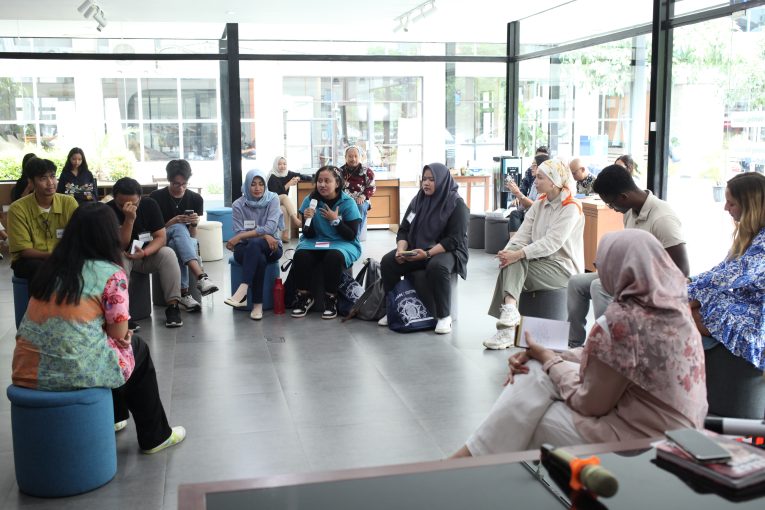
Yogyakarta, May 30th 2024─Department of Communication Science (DIKOM) of Fisipol UGM collaborated with the Ministry of Tourism and Creative Economy (Kemenparekraf) of the Republic of Indonesia in organizing a Focus Group Discussion themed Sustainable Quality Tourism. Held on Thursday (30/5) at BRIWork Fisipol UGM, the FGD aims to map the perception of tourism consumers and tourism industry players related to sustainable quality tourism. This is also a response to the rise of trends that prioritize sustainability aspects in the tourism sector and creative economy. Furthermore, the concept of sustainable tourism itself is one of the things that support the 8th Sustainable Development Goal (SDG) on Decent Work and Economic Growth.
Guided by Lidwina Mutia Sadasri, a lecturer of DIKOM UGM, the first session of FGD was followed by a group of tourism target consumers who shared their perceptions, experiences, and preferences related to sustainability and quality tourism. Most of the participants, consisting of Generation Z and Y, agreed that quality lies in the cultural aspects, locality, and income of the tourist attractions themselves. “For me, quality tourism requires authenticity. How can we experience the culture, it needs sustainability too,” said Maya, a foreign exchange student. Other participants also mentioned that interaction with local communities that provides its own value is also a support for quality tourism. However, the interaction with tourists may affect the perspective of local communities to meet the demands of tourists, which can make them neglect their culture. Therefore, the ability of local communities to maintain their culture while welcoming tourists is important to note.
The discussion continued with the topic of media as a source of information about tourist attractions. Most participants use TikTok social media to access information about tourist attractions. “Now, short content on TikTok can make me want to visit the tourist attractions. The content on TikTok is also simpler”, said Aldrin, an undergraduate student of the Department of Communication Science. Apart from the short content, FGD participants also felt that the content about tourist attractions uploaded by regular accounts was generally trustworthy. Although they are both Generation Z, Andy, one of the participants, prefers to access information through blog pages or recommendations from trusted people. Videos from YouTube channels are also one of the main choices for accessing information.
The FGD was then continued with the second session hosted by Muhammad Sulhan, the Director of Digital Media and Communication Research Center (DECODE), with tourism industry actors as participants. In this session, tourism industry players were invited to discuss the implementation of the concept of sustainable tourism in their respective business activities and communities to the experience of collaboration with supporting institutions.
